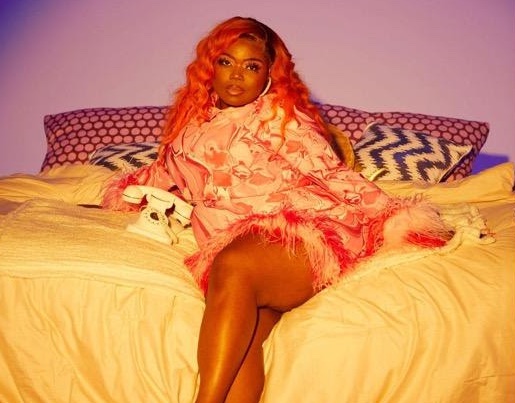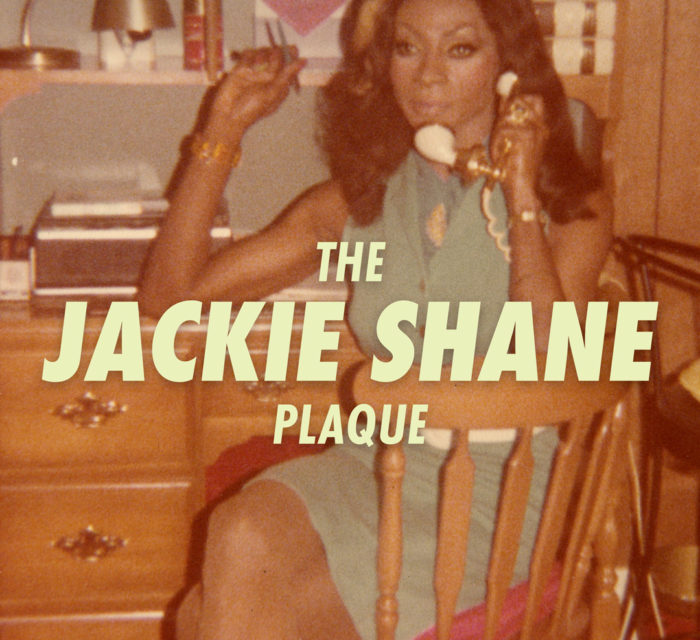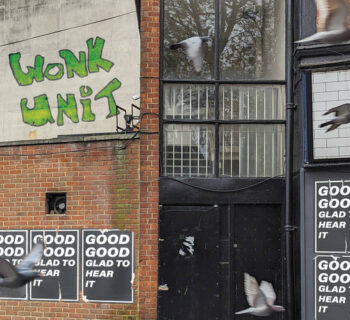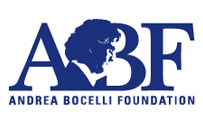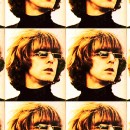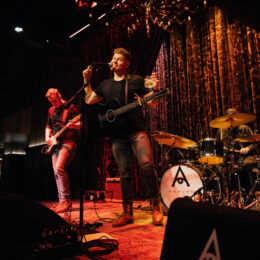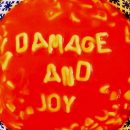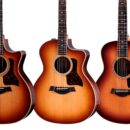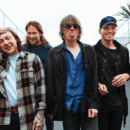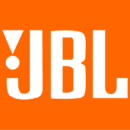The legendary Johnny Cash is one of the most influential country music stars of all time, having composed more than 600 songs and sold more than 90 million records. He received 29 gold, platinum and multiplatinum awards for his recordings and has been inducted into the Grammy Hall of Fame, the Rock and Roll Hall of Fame, the Country Music Hall of Fame, and the Hollywood Walk of Fame.
In early 1993, Johnny Cash found himself between contracts in his then nearly 40-year career and recorded an album’s worth of songwriting demos at LSI Studios in Nashville of songs he’d written over many years. LSI at the time was managed by his son-in-law Mike Daniels and daughter Rosey, and he wanted to help the family financially while also record some songs special to him. Not long after the fruitful session, Johnny met producer Rick Rubin, and the recordings were shelved as the two embarked on an important and prolific musical partnership that revitalized the Man in Black’s career that would last the rest of his life.
Some thirty years later, John Carter Cash, the son of Johnny and June Carter Cash, rediscovered the songs and stripped them back to just Johnny’s powerful, pristine vocals and acoustic guitar. Along with co-producer David “Fergie” Ferguson, the two invited a handpicked group of musicians that played with Johnny, including guitarist Marty Stuart and the late bassist Dave Roe, along with drummer Pete Abbott and several others, to the Cash Cabin, a hallowed space in Hendersonville, Tenn. where Johnny would write, record and relax, to breathe new life into the tracks, taking the sound back to the roots and heart of the songs.
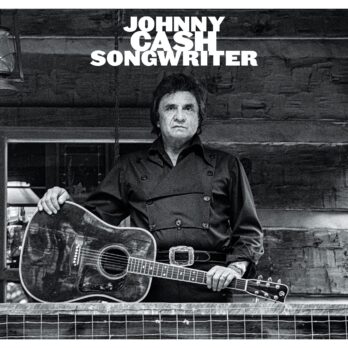
Released in June via Mercury Nashville/UMe, Songwriter, features songs written solely by Johnny Cash. Returning the focus to Johnny’s own songwriting, the 11-track collection showcases the breadth of his writing, one that has always represented the great expanse of the human condition: there are songs of love, family, sorrow, beauty, spiritual salvation, survival, redemption, and of course, some of the lighthearted humor Johnny was known for, all sung in his unmistakable, trademark, resonant voice.
In June 2024, I asked John Carter Cash to further elaborate on Songwriter.
“David Ferguson and I have worked together for years and I was familiar with the energy he has in the studio. There was never a disagreement, it was always ‘let’s try this’ or ‘let’s try that’ and most of what we tried worked. One thing that’s beautiful to me about this recording was to be able to add some of the people that my father had actually worked with, or that were friends to him. We started with my father’s voice and, in some cases, his acoustic guitar, and began building on it from there. We added Marty Stuart, Dave Roe, Pete Abbot, Russ Pahl, my son Joseph Cash, my wife Ana Cristina Cash, and more. We kept Waylon Jennings’ vocals on two of the tracks and added Dan Auerbach and Vince Gill to a couple of tracks. Choosing the musicians was easy, it truly was.
“When I got to listening to these recordings from 1993, I knew that dad’s voice was at an amazing point of prime and I felt like that was a time during his career and in his writing life that hadn’t gotten enough attention and focus. Because I knew the joy that was there in him, I wanted to be able to share that with the world. Where he was at in his life when he recorded these songs dictated the feel of the album.”
I also heard from David “Fergie” Ferguson about their collaboration.
“As for deciding on musicians, John Carter and I both produce records for a living and it turns out we use a lot of the same musicians. After we talked it over, we came up with that combination of guys to be the band. Also, John and myself have known each other and worked together since the early ‘80s.
“Johnny Cash had a great since of humor and you can hear it in many of his songs. We tried to not lose that while also retaining the integrity of the more serious songs. It’s difficult to take such a diverse group of songs and find flow, but I think the sequence works very well. I worked with Johnny for many, many years, and I miss him very much. I truly believe that he would love this record! And I hope everyone does.”
“Dad’s advice with anything, whether it was life or making music, was always ‘follow your heart,” emphasized John Carter. And it is this truism of his father’s that let guide him every step of the way when making Songwriter. After stripping the original recordings back to just Johnny’s vocals and guitar, he reached out to Fergie, a longtime friend and Johnny’s go-to engineer for nearly thirty years, and the two set off to create an album that would honor and amplify Johnny’s songwriting and timeless voice, while staying true to the spirit of the recordings.
Along with John Carter, Fergie is arguably one of the people that knew best what Johnny liked when it came to recording as they worked together beginning in the early 1980s when he was Cowboy Jack Clement’s in-house engineer where Johnny often liked to record. He would go on to work with him on many records, including most of his Mercury albums and the acclaimed American Recordings series with Rick Rubin, even recording his last-ever songs in his final days in 2003. “He was always my hero and I just felt like the luckiest guy in the world to get to record him,” admitted Fergie.
For John Carter, working on Johnny’s music is a form of catharsis and communion with his dad. “It’s not about selling Johnny Cash, he would be doing that himself,” underlined John Carter.
“I'm grateful that this record is here, even if it was only for me, because it reminds me of who my father was, and I do believe there are people out there that knew him on somewhat of a level that I did, that will be just as touched,” posed John Carter. “But I also believe that there are people out there that have never heard my father's music that will find new interest in hearing this, hearing this album and hearing my father's voice. I hope that gleans some curiosity in some people where they dig further, and they discover more because there's a lot to see within those pages.”
Ultimately, Songwriter is all about putting the spotlight back on Johnny’s songwriting. “I wanted it to be songs that mostly people hadn't heard and that paid close attention to who he was as a songwriter and who he was as an American voice,” underscored John Carter.
“One of my most important focuses in the past 10 years is to make sure that history, as best that I can possibly, is to give history the opportunity to notice him as the great writer he is. Bob Dylan says he's one of the greatest writers of all of American written music and I agree. I want to put that in the forefront. His writing voice specifically is a certain voice, that I think if America wants to know their history, that's a good place to look. Johnny Cash is definitely one true voice that we can listen to, specifically to his writings.”
The La Jolla Playhouse in the San Diego area has announced the cast and creative team for its world-premiere musical, The Ballad of Johnny and June, book by Robert Cary (SUMMER: The Donna Summer Musical) and Playhouse Director Emeritus and two-time Tony Award winner Des McAnuff (Jersey Boys, The Who’s Tommy), music and lyrics by Johnny Cash, June Carter Cash and others, directed by McAnuff. The production runs in the Mandell Weiss Theatre through July 7th.
For information, visit LaJollaPlayhouse.org. The cast features Christopher Ryan Grant (Broadway’s Million Dollar Quartet) as “Johnny Cash,” Van Hughes (Broadway’s American Idiot) as “John Carter Cash,” and Patti Murin (Broadway’s Frozen) as “June Carter Cash,” along with Maddie Shea Baldwin as “Anita,” Paula Leggett Chase as “Carrie,” Drew Wildman Foster as “Carl Smith/Jack Cash/Marshall Grant,” Gabriella Joy as “Vivian,” Bart Shatto as “Ray Cash/Sam Phillips/W.S. Holland,” and Correy West as “Luther Perkins/Rip Nix.”
Johnny Cash and June Carter Cash still remain to this day one of the most famous couples of the 20th Century. Created with the support of the family and told through the eyes of their son John Carter Cash, this musical covers it all: their childhoods, their 1956 meeting at the Grand Ole Opry, the storied on-stage proposal in 1968, and the soaring highs and whiplash lows of fame, life on the road, addiction, arrests, controversies, marriage, family and devotion. This is a whole-hearted and clear-eyed telling of one of the most iconic love stories in music history, complete with a soundtrack of hits — I Walk the Line, Ring of Fire, Hey Porter, Jackson, I’ve Been Everywhere and many more.
Out in mid-November 2023 from publishers White Rabbitt (UK) and Voracious/Little, Brown and Company (US) is JOHNNY CASH: The Life in Lyrics – a groundbreaking collection of Johnny Cash’s iconic songs, enriched with a treasure trove of exclusive visuals, handwritten notes, and captivating ephemera, written by Cash and Carter family historian, Mark Stielper, with personal anecdotes and commentary from Cash’s son, John Carter Cash.
“There is no better way to know my father than to look at his written works,” suggests John Carter Cash. “Whether the songs he recorded, his poetry, or material not published in his lifetime, he put his heart, blood, and spirit into everything to which he added a pen. I am blessed to see this book being released, and to know that his brilliance and life are being honored through focus on his greatest life creation, his words.”
Johnny and I share the same February 26th birthday.
During January 1964, Cash sang two songs on the Shindig! country and western music pilot hosted by Roy Clark.
In January 1965 I saw a Johnny Cash Shindig! taping on Prospect Avenue in Los Angeles at ABC-TV studios.
In 1968 Cash guested on The Summer Smothers Brothers Show at CBS Television City. I later caught Johnny and June Cash at The Anaheim Convention Center, Doug Weston’s Troubadour and The House of Blues in Hollywood. I must have seen their act over a dozen times in 35 years.
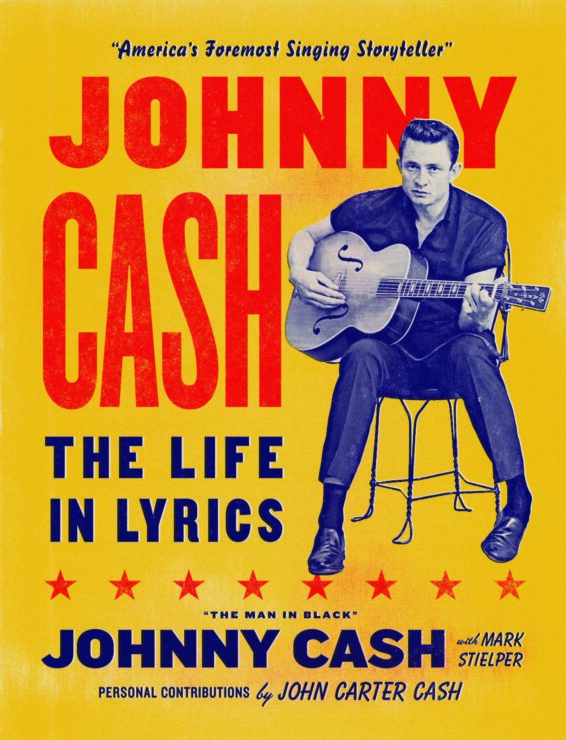
On August 16, 1975 in Orange County, California, I interviewed Johnny Cash for the now defunct UK music weekly Melody Maker at the Royal Inn Hotel in Anaheim.
I asked Johnny Cash about Bob Dylan.
"I became aware of Bob Dylan when the Freewheelin' album came out in 1963.
“I thought he was one of the best country singers I had ever heard. I always felt a lot in common with him. I knew a lot about him before we had ever met. I knew he had heard and listened to country music. I heard a lot of inflections from country artists I was familiar with. I was in Las Vegas in '63 and '64 and wrote him a letter telling him how much I liked his work. I got a letter back and we developed a correspondence.
"We finally met at Newport in 1964. It was like we were two old friends. There was none of this standing back, trying to figure each other out. He's unique and original.
“I keep lookin' around as we pass the middle of the 70s and I don't see anybody come close to Bob Dylan. I respect him. Dylan is a few years younger than I am but we share a bond that hasn't diminished. I get inspiration from him.
“We’ve gone fishin’ on my boat dock for hours and haven’t said a word.”
As a teenager, in the very late fifties, Dylan, birth name Robert Allen Zimmerman, hitchhiked from Hibbing, Minnesota, to Duluth to see Cash and the Tennessee Two (Marshall Grant bass and Luther Perkins guitar) at the Duluth amphitheater.
On February 6, 2015 Bob Dylan was honored at the 25th anniversary MusiCares 2015 Person of the Year Gala at the Los Angeles Convention Center in Los Angeles.
In his stage remarks, Dylan praised Cash.
"Johnny Cash recorded some of my songs early on, too. I met him about '63, when he was all skin and bones. He traveled long, he traveled hard, but he was a hero of mine. I heard many of his songs growing up. I knew them better than I knew my own. 'Big River,' 'I Walk the Line.' 'How High's the Water, Mama?’ I wrote 'It's Alright Ma (I'm Only Bleeding)' with that song reverberating inside my head.
"Johnny was an intense character, and he saw that people were putting me down [for] playing electric music. And he posted letters to magazines, scolding people, telling them to 'shut up and let him sing.' In Johnny Cash's world of hardcore Southern drama, that kind of thing didn't exist. Nobody told anybody what to sing or what not to sing."
Drummer and friend Jim Keltner on November 19, 1979 invited Knack drummer Bruce Gary and I to the Santa Monica Civic Auditorium in Southern California to attend Bob Dylan’s Slow Train Coming tour. Jim was in the band. I was reviewing the concert for Melody Maker.
I had a very brief backstage encounter with Dylan. He inquired about Phil Spector. I told him I had recently done an interview with Spector for Melody Maker. Phil talked about R&B vocalists, also listing “Dion, John, Paul, Elvis, Bobby Darin, and Johnny Cash as great singers.”
Dylan then removed his sunglasses. He has blue eyes like Eva Marie Saint, Charles Bukowski, and Kris Kristofferson. Bob offered a firm handshake, and smiled, “Johnny Cash is a friend of mine.”
In Chronicles: Volume One, Dylan writes “Johnny Cash sounds like he’s at the edge of fire, or in the deep snow, or in a ghostly forest, the coolness of conscious obvious strength, full tilt and vibrant with danger…Johnny’s voice was so big, it made the world grow small…”
In November 1961, Cash had stuck his head inside the Columbia Records studio when talent scout/A&R man John Hammond was producing Dylan’s debut album, Bob Dylan.
“Dylan was also grateful that Cash would constantly endorse his talents to skeptical Columbia Records executives,” Antonino underscored to me in a 2009 interview, “after the initial weak sales of his first platter, some calling it ‘Hammond’s Folly.’”
In the 2022 Bob Dylan-penned book, The Philosophy of Song, Dylan lists Cash’s “Big River,” first recorded for Sun Records, as one of his selections.
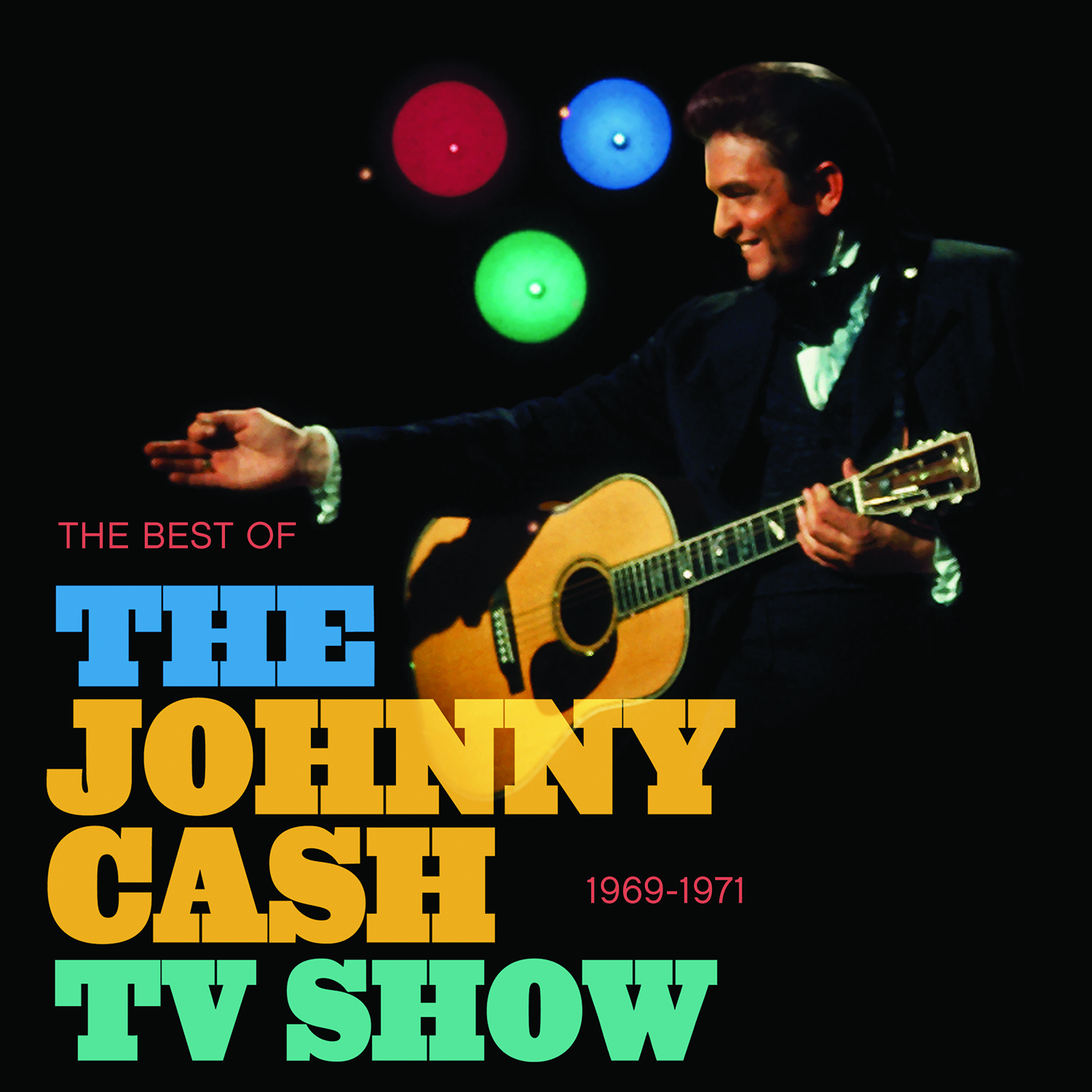
Dylan and The Band did the tune in 1967 during The Basement Tapes sessions, officially issued in 2014 on The Bootleg Series Vol. 11: The Basement Tapes Complete. Dylan and Cash then cut the Cash song, produced by Bob Johnston, at their 1969 Dylan-Cash sessions, officially issued in 2019 on The Bootleg Series Vol. 15 Travelin’ Thru, 1967-1969.
In The Philosophy of Song, Dylan lists another song written and recorded by Cash, “Don’t Take Your Guns to Town,” a single from the 1958 album The Fabulous Johnny Cash.
In 1966, Johnny Cash was concluding his own geographical relationship to the Southern California area and Los Angeles.
Before he became a living tradition, Johnny Cash spent large portions of a decade of his life near Hollywood after leaving Sun Records and Memphis, doing his first gospel LP when he signed to Columbia Records.
On August 13, 1957 at a party in California, Cash first met British-born record producer Don Law after a local television date who first touted Johnny about joining Columbia Records after Cash’s contract with Sam Phillips and Sun ended on August 1, 1958.
In August 1958 Cash and clan moved to California and he rented an apartment on Coldwater Canyon Avenue in North Hollywood.
Cash and his family later bought a ranch house from comedian/TV host Johnny Carson on Havenhurst Avenue in Encino in the San Fernando Valley. Johnny Cash Enterprises was located on Sunset Blvd. at the Crossroads of the World complex in Hollywood.
Cash did a slew of television appearances in the Southern California area in the sixties including the Compton-based and Hadley’s Furniture sponsored Town Hall Party program in 1960 that was broadcast on KTTV-TV.
Cash, and his pal, actor, singer and radio host, Johnny Western, along with Pat Shields, a PR guy doing promotions for Liberty Records, had a company together called Great Western Enterprises on Western Avenue in Hollywood. Johnny Western sang the theme song to the television series Have Gun, Will Travel.
In 1964 Cash recorded Bitter Tears: Ballads of the American Indian, his history of Native Americans concept album. He toured Wounded Knee, South Dakota with descendants of the survivors of the 1890 massacre, played songs from the LP at a benefit performance at Cemetery Hill for the tribe and helped the Sioux raise money for schools. This is four years before AIM, the American Indian Movement civil rights organization was founded in Minneapolis, Minnesota.
Cash sent out personal letters and copies of his 45RPM recording of folksinger Peter La Farge’s “The Ballad of Ira Hayes” on that album, after Johnny purchased a thousand of them from Columbia Records and mailed the entire batch to every radio station in the country. It eventually landed at number three on the Billboard Country Singles chart in 1964.
In February 1965, Cash performed “The Ballad of Ira Hayes” on a Los Angeles television program, The Les Crane Show. That was must-see TV.
Cash debuted “The Ballad of Ira Hayes” at his 1964 Newport Folk Festival appearance, following “I Walk the Line,” and Dylan’s “Don’t Think Twice, It’s All Right” in his set. Johnny also famously gave Bob a Martin guitar. Dylan himself waxed “The Ballad of Ira Hayes” during 1970 sessions for New Morning that later surfaced on the 1973 Dylan album.
In the very late sixties, Cash was selling concert tickets and guesting on TV. The success of his Johnny Cash at Folsom Prison LP gave him new visibility on the pop and rock charts.
In June 1969, Columbia Records issued Johnny Cash at San Quentin that scored in the charts, aided by the LP’s smash country, pop and rock hit single, “A Boy Named Sue.”
It convinced the ABC network to developed a Johnny Cash TV property that was directed and executive produced by William Carruthers. Stan Jacobson was the producer and associate producer was Joel Stein.
The Johnny Cash Television Show series ran on ABC-TV from 1969-1971. Among the subsequent Cash-invited performers: Louis Armstrong, Bill Monroe, Dusty Springfield, Judy Collins, the Monkees, Creedence Clearwater Revival, Stevie Wonder, Tony Joe White, Homer & Jethro, the Everly Brothers, Joni Mitchell, Neil Young, Derek and the Dominos, Roger Miller, Faron Young, Charley Pride, Loretta Lynn, Marty Robbins, Mickey Newbury, Neil Diamond, Conway Twitty, Tammy Wynette, Waylon Jennings, George Jones and Doug Kershaw.
"One reason country music has expanded the way it has is that we haven't let ourselves become locked into any category. We do what we feel,” reinforced Cash in our 1975 dialogue.
Bill Carruthers directed year 1969.
“My dad was the executive producer and director for the first year. It was his show,” recalls Byl Carruthers, then Billy, the son of Bill Carruthers, who was a guitarist/songwriter in the roots’ music duo, Café R&B.
“The first show was a mindblower, as we all know, and the first season surprised ABC enough to pick it up. The sets were cheap, ‘cause they had no money. The production issues they faced retro-fitting the Ryman Auditorium were immense,” recollected guitarist/songwriter Carruthers.
“For that year of pre-production and production, my dad and John were close. He showered my dad with gifts (among them a 1932 Martin Guitar, and a Civil War Colt Pistol -John had a pair of them with consecutive numbers. He gave my father one, and he kept one, so they'd each have one as symbol of their relationship.”
The Johnny Cash Show debuted in June 1969. Programs were done at Nashville’s Ryman Auditorium, which back then was home to the Grand Ole Opry 1943-1974. Bill Walker was the musical director and arranger. June Carter Cash and the Carter Family, Carl Perkins, the Statler Brothers, and the Tennessee Three were screen regulars.

On the first Cash TV episode, Johnny and Bob performed 3 songs from Nashville Skyline. “The sound jumped off the screen on the Cash TV series because I never told anybody nothing that wasn’t the truth. Everything I said and did was for the artist,” explained Johnston.
Bob Dylan taped his memorable segment on May 1, 1969 and it was broadcast on June 1st.
“Dylan called my dad, before he and his staff left for Nashville,” reminisced Byl Carruthers.
“I had gone to work with my dad that day. He had an overall deal with Screen Gems at the time, and had an office on their lot. He had said we were going to get lunch, and then his assistant beckoned him back to the office, saying it was important!
“Two full hours went by, and I had to wait. When he got off the phone, he came out and said that he had just gotten off the phone with Bob Dylan. I asked him what he was calling about, and he said that Johnny wanted Dylan to do the show. Johnny really wanted Bob to do the first episode, and told Bob that he would be in good hands with my dad, and he wouldn't have to do anything he didn't want to. My dad said Bob was ‘feeling him out’ on the phone.
“My dad was very cool about letting me hang when the musicians were there, and yes, I got to fetch coffee and stuff for Bob Dylan, in the hour or so before the taping...
“I distinctly remember Dylan having two very sedate western-style two-piece suits laid out, and he saying to my dad ‘Bill, which one of these do you think would be best?’ A few minutes later, my dad said to the assistant director, ‘I can't believe Bob asked me what he should wear!’”
In his review of The Johnny Cash Show in the June 12, 1969 issue of Great Speckled Bird, the counterculture underground newspaper in Atlanta, Georgia, Gene Guerrero reviewed and hailed the ABC-TV/Screen Gems initial television broadcast.
“TV CASHES IN. OCCASIONALLY, television gives the viewer a glimpse of its potential as a creative medium. Usually, as with the Smothers Brothers Show, it is a fleeting glimpse before the owners of the public airways get uptight or commercialism subverts the creativity. With the inauguration of the Johnny Cash Show, country music has finally made it to network television. One can only hope and pray that it will take a couple of seasons before these corrupting influences set in.
“Dylan sang a couple of songs off his new album including 'Girl From the North Country' which he sings with Cash. In a non-contrived way Dylan and Cash singing together remind you of two kids practicing for their first recital. In this time of super-slick entertainers, that's very refreshing.”
Johnny gave a forum to former HUAC blacklist victim Pete Seeger who sang the anti-war song “Big Muddy,” and Canadian singer/songwriter and social activist, Buffy Saint-Marie, a member of the Cree First Nation, who did Peter La Farge’s “Custer” on the program. Cash also refused to edit the word “stoned” from Kris Kristofferson’s “Sunday Morning Coming Down.”
However, Johnny said that TV obligations of his ABC-TV series hampered his creativity.
“It cut down on my touring, it became too confining,” Cash explained in our 1975 conversation.
“We stayed in Nashville for two-thirds of the time. I really didn’t enjoy it all that much. If it was kept loose and spontaneous it could have been great. But we had to do the same song every eight or ten times before they would accept it. The show lost its feel and honesty. Consequently, I lost a lot of interest in it,” stressed Johnny.
In September 2006 a 2-disc DVD set of The Best of the Johnny Cash Show, hosted by Kris Kristofferson, was distributed by CMV/Columbia Legacy, a division of Sony BMG Music Entertainment.
Harvey Kubernik is the author of 20 books, including 2009’s Canyon Of Dreams: The Magic And The Music Of Laurel Canyon, 2014’s Turn Up The Radio! Rock, Pop and Roll In Los Angeles 1956-1972, 2015's Every Body Knows: Leonard Cohen, 2016's Heart of Gold Neil Young and 2017's 1967: A Complete Rock Music History of the Summer of Love.
Sterling/Barnes and Noble in 2018 published Harvey and Kenneth Kubernik’s The Story Of The Band: From Big Pink To The Last Waltz. In2021 they wrote Jimi Hendrix: Voodoo Child for Sterling/Barnes and Noble. Otherworld Cottage Industries in 2020 published Harvey’s Docs That Rock, Music That Matters.
He is currently writing a book Screen Gems: (Pop Music Documentaries and Rock ‘n’ Roll Television Moments).
Kubernik is in several book anthologies, including The Rolling Stone Book Of The Beats and Drinking With Bukowski. Harvey wrote the liner notes to CD re-releases of Carole King’s Tapestry, The Essential Carole King, Allen Ginsberg’s Kaddish, Elvis Presley The ’68 Comeback Special, The Ramones’ End of the Century and Big Brother & the Holding Company Captured Live at The Monterey International Pop Festival.
During 2006 Harvey spoke at the special hearings initiated by The Library of Congress held in Hollywood, California, discussing archiving practices and audiotape preservation. In 2017 Kubernik appeared at the Rock and Roll Hall of Fame in Cleveland, Ohio, in their Distinguished Speakers Series.


